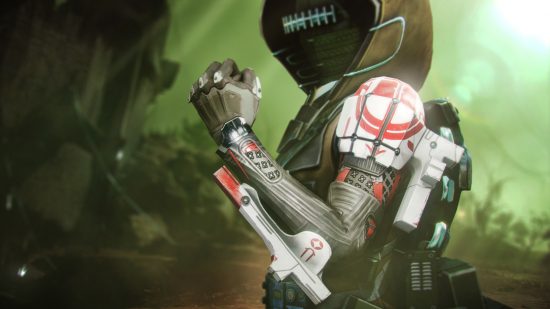Destiny 2 lawsuit counterclaims from alleged cheat seller AimJunkie, Phoenix Digital, and several individuals have been dismissed by a federal court in Seattle, Washington, according to a court filing from November 10.
The language of the ruling appears to mark a win for Bungie, which sued the alleged cheat maker for various copyright and trademark infringement claims involving the popular FPS game. However, the court dismissed the counterclaims without prejudice, meaning the defendant still has a short amount of time to amend and refile the counterclaims.
Bungie first filed the lawsuit in response to a “Destiny 2 Hacks” cheat sold for $34.95/month on AimJunkies.com, according to TorrentFreak. Phoenix Digital was the listed seller of Destiny 2 Hacks, which promised “Destiny 2 Aimbot,” “Destiny 2 No Recoil,” and ‘Destiny 2 Item ESP,” which refers to ways to find the best weapons and armour.
Bungie sued based on trademark and copyright infringement, including claims that the company copied and distributed Destiny 2 code and circumvented technological protections in violation of the Digital Millennium Copyright Act.
The defendant, AimJunkie, which specialises in developing what Bungie calls “cheat software,” attempted to issue a counterclaim against Bungie, suggesting that cheating isn’t illegal.
“Bungie apparently hopes to bamboozle this court into proscribing entirely lawful activities,” the document filed on February 4, 2022, reads. “This court should not be party to such questionable tactics and should apply the laws that actually exist, not those Bungie apparently conjures out of thin air.”
While cheating in a video game may not carry any criminal consequences, methodologies used to develop cheats sometimes involve altering a game’s source code, which can then be construed as infringing copyrights or trademarks.
In this case, the federal court initially appeared to primarily side with AimJunkies, suggesting that Bungie successfully stated its trademark infringement claims but failed to assert its copyright infringement claims adequately. However, in dismissing or referring the copyright claims without prejudice, the court allowed Bungie to clarify its claims, which the company then refiled as an amended complaint.
In the most recent ruling addressing the counterclaims, the court sided with Bungie, granting Bungie’s Motion to Dismiss and thereby dismissing the defendants’ counterclaims. Although the filing notes that “Bungie has made a strong showing that the counterclaims should be dismissed with prejudice,” Judge Thomas Zilly dismissed the claims without prejudice, meaning the defendants can amend and refile its claims. However, Zilly granted the defendant until November 21 to file an amended pleading.
Although it’s not over, AimJunkies has quite a battle ahead of it as the documentation appears to show the court leaning in favour of Bungie. Previously, Bungie sued cheat maker GatorCheats in a lawsuit that settled for $2 million.
The nature of these lawsuits shows the strides Bungie is taking to police hackers and prevent cheating in Destiny 2. If unchecked, cheating is problematic in PvP events such as Iron Banner and Trials of Osiris. Hacks can even assist players in achieving top times in PvE activities like the King’s Fall raid, which players can exploit to farm King’s Fall loot table weapons.
